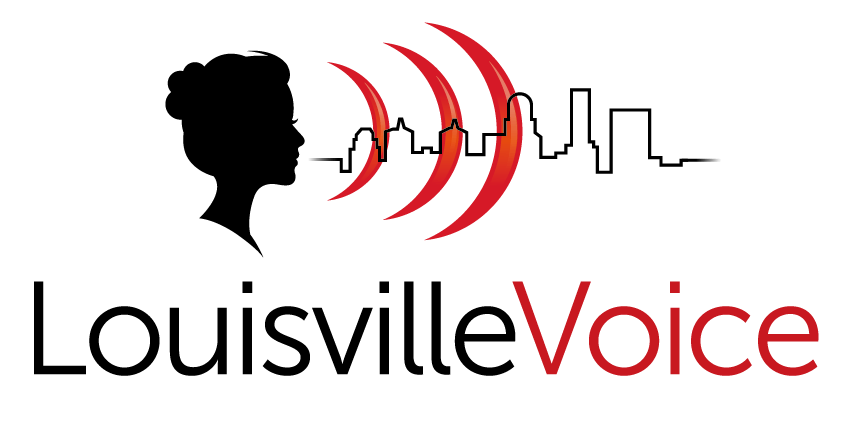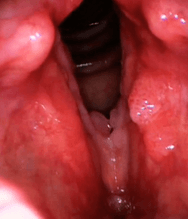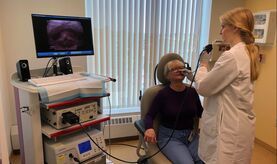RECURRENT RESPIRATORY PAPILLOMATOSIS
RECURRENT RESPIRATORY PAPILLOMATOSIS (RRP)
What is Recurrent Respiratory Papillomatosis (RRP)?
Recurrent Respiratory Papillomatosis (or RRP) is a disease process in which benign (noncancerous) tumors called papillomas grow in the respiratory tract. The papillomas grow primarily in the larynx and trachea, and therefore commonly present with voice changes or difficulty breathing. RRP is caused by the Human Papillomavirus (HPV types 6 and 11).
Most people who encounter HPV never develop a related illness. However, in a small number of people exposed the virus, papillomas form recurrently. Scientists do not fully understand why some people develop the disease and others do not. Patients with RRP require recurrent treatments of the papillomas at variable intervals depending on the severity of their disease. There are both juvenile and adult onset forms of the disease.
RECURRENT RESPIRATORY PAPILLOMATOSIS
What are the symptoms of RRP?
The symptoms include hoarseness, shortness of air, noicy breathing, increased vocal effort, and a feeling of a foreign body in the throat. There are many causes of these symptoms, so an expert laryngologic evaluation is important to evaluate the cause and treat before the condition worsens.
RECURRENT RESPIRATORY PAPILLOMATOSIS (RRP)
How is Recurrent Respiratory Papillomatosis Treated?
The treatment for RRP with Dr. Burckardt includes initial management in the operating room with KTP laser ablation of the papilloma and a vocal cord injection of Avastin (Bevacizumab). The KTP laser targets the blood vessels that feed the papillomas, while preserving normal vocal cord tissue. Avastin is a safe drug injected directly into the vocal folds that has been proven to prolong the intervals between RRP regrowth. The procedure is performed under general anesthesia and is an outpatient surgery.
After initial management in the operating room, RRP can be managed without the need for general anesthesia with awake laser surgery. Recurrent papillomas can be treated with the KTP laser and topical anesthesia (numbing spray) in a procedure room. The procedure is comfortable enough that sedation is not needed. You can drive yourself to and from the procedure and it is completed in under 30 minutes. Avastin injection can also be performed during the procedure.
References:
Best et al., Safety and Dosing of Bevacizumab (avastin) for the treatment of recurrent respiratory papillomatosis. Ann Otol Rhinol Laryngol. 2012 Sep;121(9):587-93. doi: 10.1177/000348941212100905.
Zeitels, et al., Local injection of Bevacizumavb (Avastin) and Angiolytic KTP Laser Treatment of Recurrent Respiratory Papillmatosis of the Vocal Folds: A Prospective Study. Ann Otol Rhinol Laryngol. 2011 Oct;120(10):627-34. doi: 10.1177/000348941112001001.
AWAKE LASER SURGERY OF THE LARYNX
What can I expect from awake laser surgery?
Awake laser surgery is a safe, well-tolerated procedure that treats various benign and pre cancerous growths of the vocal fold such as papilloma, dysplasia, leukoplakia, or keratosis. We are happy to be one of the only practices in the region to offer this treatment.
Awake laser surgery is performed using a flexible laryngoscope and a laser fiber placed through the nose. The laser fiber uses a pulsed green light KTP laser light to the treat disease. The KTP laser specifically targets the blood supply to the lesion while maximally preserving surrounding good tissue.
The patient remains awake during the procedure and can interact with the surgeon. Anesthesia (numbing medicine) is applied locally with a numbing spray to the areas being treated. The patient can usually eat one hour following the procedure and can drive themselves home immediately following the procedure.
Advantages of awake laser surgery include avoidance of a general anesthetic, faster procedure time, and a quicker recovery. The procedure is also less costly, as an operating room and general anesthesia are not required.
Complete care of the voice.
Need a highly trained voice doctor? Dr. Burckardt can help!
Louisville Voice and Dr. Elizabeth Self Burckardt are proud members of Kentuckiana Ear, Nose & Throat, PSC, providing comprehensive and compassionate care for over 40 years.
Phone
Locations
6420 Dutchmans Pkwy, Louisville, KY, United States
9850 Von Allmen Ct, Louisville, KY, United States
1405 Spring St, Jeffersonville, IN, United States
The information contained in these pages is for educational purposes only. It should not be construed as individualized diagnostic and treatment advice.
All Rights Reserved | Elizabeth Burckardt, MD
Powered by Clinician Box




